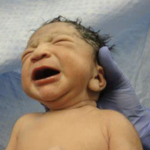
by James C. Sherlock
Politicians on the right and left proclaim they want to change Virginia’s abortion laws.
It is thus a useful exercise to see how those laws actually read. I am not an attorney, but I will take a shot at summarizing at certain points.
The reference is Code of Virginia Title 18.2 Crimes and Offenses Generally, Chapter 4. Crimes Against the Person, Article 9. Abortion. Go directly to it at the link if you wish to see the entirety of that Article.
There are nine active sections of Article 9.
We will take them individually, see how they read and point out later some of what they do not address.
§ 18.2-71. Producing abortion or miscarriage, etc.; penalty makes it a Class 4 felony to conduct or produce an abortion “except as provided in other sections of this article.”
§ 18.2-71.1. Partial birth infanticide; penalty. This section is longer than you might imagine, defines what partial birth infanticide is and what it is not; and defines it as a Class 4 felony:
E. This section shall not prohibit the use by a physician of any procedure that, in reasonable medical judgment, is necessary to prevent the death of the mother, so long as the physician takes every medically reasonable step, consistent with such procedure, to preserve the life and health of the infant. A procedure shall not be deemed necessary to prevent the death of the mother if completing the delivery of the living infant would prevent the death of the mother.
§ 18.2-72. When abortion lawful during first trimester of pregnancy.
Provides the first exception to § 18.2-71 under which abortion is legal.
Short version: Abortion during the first trimester is legal when conducted by a licensed physician or nurse practitioner.
§ 18.2-73. When abortion lawful during second trimester of pregnancy.
Short Version: Abortion is legal when conducted in the second trimester by a licensed physician in a hospital.
§ 18.2-74. When abortion or termination of pregnancy lawful after second trimester of pregnancy.
Short version: Third trimester abortion is legal if done by a licensed physician
provided the following conditions are met:
(a) Said operation is performed in a (licensed) hospital ….
(b) The physician and two consulting physicians certify and so enter in the hospital record of the woman, that in their medical opinion, based upon their best clinical judgment, the continuation of the pregnancy is likely to result in the death of the woman or substantially and irremediably impair the mental or physical health of the woman. [Emphasis added.]
(c) Measures for life support for the product of such abortion or miscarriage must be available and utilized if there is any clearly visible evidence of viability.
§ 18.2-74.1. Abortion, etc., when necessary to save life of woman.
To save the life of a woman, abortion is legal subject only to the opinion of the physician so performing the abortion or causing the miscarriage.
§ 18.2-75. Conscience clause. No hospital or physician is required to host or perform an abortion and no person is required to assist. Such persons are protected against any recrimination.
§ 18.2-76. Informed written consent required. The physician or nurse practitioner “shall obtain the informed written consent of the pregnant woman.”
However, if the woman has been adjudicated incapacitated by any court of competent jurisdiction or if the physician or, … the nurse practitioner … knows or has good reason to believe that such woman is incapacitated …, then only after permission is given in writing by a parent, guardian, committee, or other person standing in loco parentis to the woman…. may the abortion, induction or termination be performed.
§ 18.2-76.1. Encouraging or promoting abortion.
If any person, by publication, lecture, advertisement, or by the sale or circulation of any publication, or through the use of a referral agency for profit, or in any other manner, encourage or promote the performing of an abortion or the inducing of a miscarriage in this Commonwealth which is prohibited under this article, he shall be guilty of a Class 3 misdemeanor.
Omissions in the laws. First
, and perhaps most obviously, Virginia law does not address abortifacients. Abortifacient drugs are both legal and toxic, and to be safe they must be taken under medical supervision. More than half of the pregnancy terminations in the United States are through use of abortifacient drugs.
Other than those basic facts, abortifacients, starting with the definition of the term, are very controversial.
The most popular abortion pill, mifepristone, is approved by the U.S. Food and Drug Administration for abortion use and, though a prescription drug, is commonly sent through the mail.
One of the warnings on the label of mifepristone is:
You should get mifepristone only from a certified doctor and use this medication only while under the care of a doctor. You should not buy mifepristone from other sources, such as the Internet, because you would bypass important safeguards to protect your health. Do not let anyone else take your medication.
Virginia law, very careful to protect the mother in other abortions, takes no position on abortifacients.
Second, Virginia law makes no reference to the father of the child, even when the woman is incapacitated under the informed written consent requirements.
Third, § 18.2-74. governing late term abortions makes them legal if they are done to prevent “substantial and irremediable impair(ment) of the mental or physical health of the woman.”
That same law requires neither a psychiatrist nor a psychologist to be a member of the panel that makes a mental health diagnosis.
Bottom line. Above is a summary and the link to how Virginia law on abortion currently reads.
In its current form, though there has been some back and forth, nearly all of it has been there with only technical corrections since 1975.

Leave a Reply
You must be logged in to post a comment.